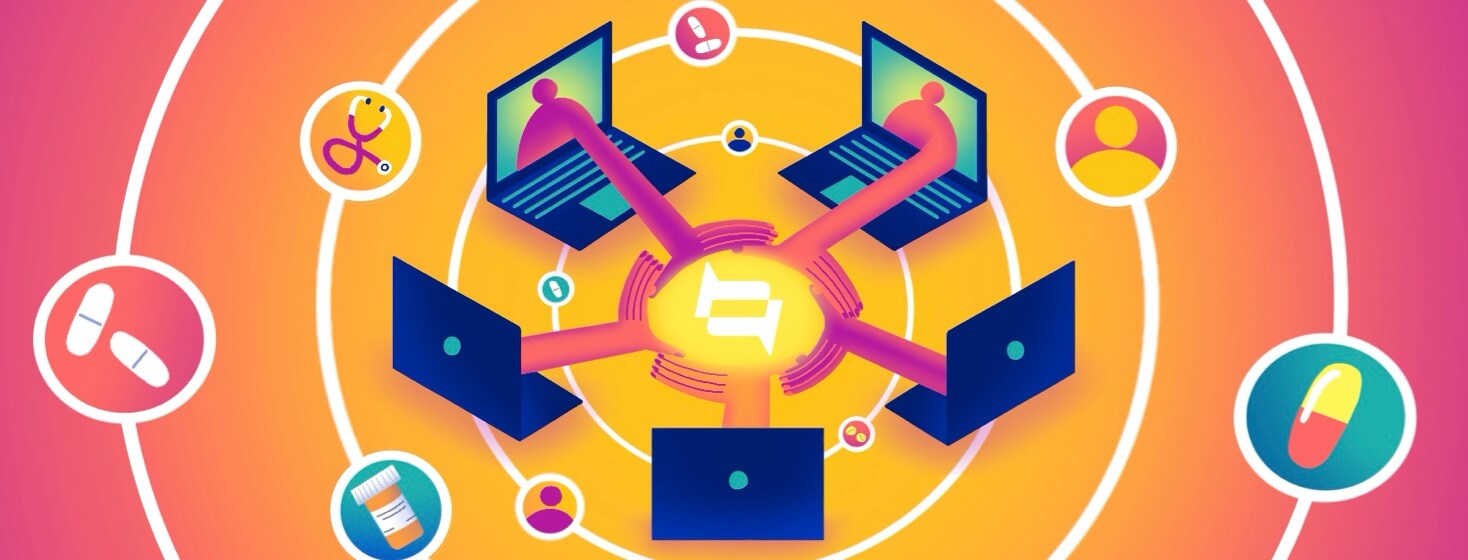5 Situations That Prompt Patients to Engage in Social Health
Published February 22, 2022 | 3 Minute Read
Nothing quite compares to the level of solace patients find in connecting with others who share similar health experiences. These interactions have become so fundamental to people living with chronic conditions that a recent Health Union survey of 2,371 patients revealed 95% use online social resources for health reasons.
In 2022, social health – the dynamic, real-time actions people take to find meaningful connections and share information throughout the health journey – is more relevant than ever. When properly executed, social health interactions can be leveraged to create a mutually beneficial impact for both patients and pharma.
To expertly engage patients, it’s important to understand in which circumstances social health is being utilized. Integrating into existing, authentic social interactions creates opportunities for pharma to drive action in the moments that matter most.
Health Union research found that social health engagement and interactions occur most often when the patients surveyed face the following situations:
1. While understanding test results (74%).
In addition to results themselves, patients turn to social health to discuss the emotions felt leading up to tests and while waiting for results; oncology-specific communities have co-opted the term scanxiety to reflect their distinct experiences.
2. When finding or learning about a new medication or treatment (74%).
Patients who describe themselves as playing an active role in treatment are more likely to feel they actively seek out information about the latest condition medications, and more likely to go online to read other patients’ opinions of a medication than those who do not play an active role.
3. At the time of diagnosis (72%).
This is particularly common in Health Union’s autoimmune condition communities, among which research shows “the voice of experience” may help foster confidence in newly diagnosed patients.
4. When experiencing new or different symptoms (69%).
And not just the ones that seem “obvious”; various aspects of living with a chronic condition can have considerable impact on relationships, which is why treating intimacy as a clinical symptom matters.
5. When starting or switching medication or treatment (65%).
Notably, people living with cystic fibrosis have shared positive experiences when starting a CFTR modulator, while women living with endometriosis discuss “shopping” around for the right hormone therapy.
As a result of engaging in social health – in the situations highlighted and beyond – 86% of patients surveyed reported they’re able to better understand their condition and 73% are able to better communicate with their doctor. More than eight in ten patients noted they utilize information gathered online in conversations with an HCP.
Additionally, nearly two out of every three patients reported feeling less alone in their condition as a result of utilizing social health. Online health communities that offer social support, engagement and moderation are particularly valuable for fostering safe and productive conversations, per Health Union’s published analysis in the Journal of Medical Internet Research.
Whether choosing to lurk, like, comment or post, social health brings patients together in shared experiences. Knowing which situations are most often prompting engagement presents opportunities to meet patient wants and needs in the moments that matter most.
Partner with Health Union to expertly navigate the expansive world of social health – from scalable online health communities and social extensions to comprehensive quantitative condition-specific data and more.
Social health survey conducted July 26 – August 2, 2021; respondents recruited via Health Union’s online communities and Patient Leader Network.





